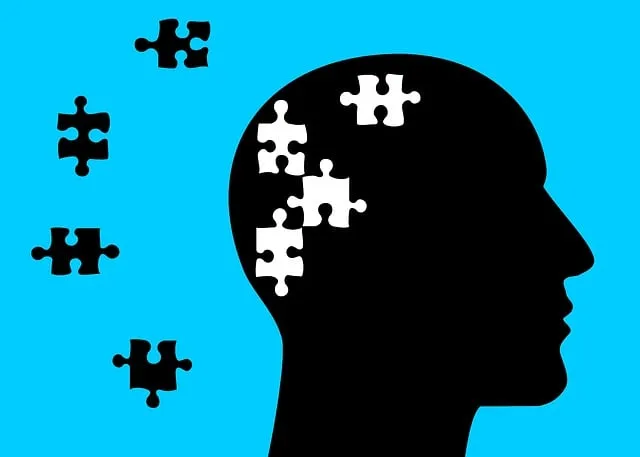The Kaiser Permanente behavioral health center in Colorado Springs employs skilled facilitators to lead group sessions focused on mental wellness. These sessions create safe, supportive environments where participants share experiences, build resilience, and learn coping strategies. Facilitators use active listening, empathy, and structured activities to foster open dialogue, self-awareness, and community bonds. Burnout prevention strategies tailored for healthcare providers are also integrated, addressing the unique challenges of helping professions. Cultural sensitivity enhances these groups by encouraging diverse perspectives and boosting participants' confidence and resilience.
Mental wellness group facilitation plays a pivotal role in fostering collective healing and personal growth, making it an essential component of modern healthcare. This article explores effective techniques employed by facilitators at the Kaiser Permanente Behavioral Health Center Colorado Springs. We delve into understanding group facilitation, its benefits for mental health, and best practices to create a supportive environment. Through active listening, cultural sensitivity, and tailored exercises, facilitators empower individuals to navigate challenging topics together, revolutionizing mental wellness support in community settings.
- Understanding Mental Wellness Group Facilitation
- – Define group facilitation and its role in mental wellness
- – Highlight benefits of group settings for individual healing and growth
Understanding Mental Wellness Group Facilitation

Mental wellness group facilitation is a specialized skill set that plays a pivotal role in supporting individuals’ emotional well-being and fostering a sense of community. At centers like Kaiser Permanente behavioral health center Colorado Springs, facilitators create safe spaces for open dialogue, encouraging participants to share their experiences and learn from one another. This approach leverages the power of collective support, fostering connections that can be as powerful as individual therapy sessions.
Effective group facilitation involves a blend of active listening, empathetic understanding, and strategic techniques aimed at promoting emotional well-being. By employing Emotional Well-being Promotion Techniques, facilitators guide members through activities designed to enhance self-awareness, build resilience, and foster healthy coping mechanisms. Additionally, Burnout Prevention Strategies for Healthcare Providers are integral to these sessions, addressing the unique challenges faced by those in helping professions and offering tools to manage stress and maintain long-term sustainability in their roles.
– Define group facilitation and its role in mental wellness

Group facilitation plays a pivotal role in enhancing mental wellness at institutions like the Kaiser Permanente behavioral health center Colorado Springs. It involves skillfully guiding a group of individuals through a shared experience, aiming to improve their emotional and psychological well-being. In this context, facilitators create a safe space where participants can openly discuss challenges, share coping strategies, and build supportive connections. This collaborative approach not only fosters individual growth but also cultivates a sense of community within the group.
Techniques such as active listening, reflective questioning, and structured activities empower mental health professionals to facilitate meaningful discussions around topics like stress management, resilience building, and self-awareness exercises. By employing these methods, facilitators promote understanding, empathy, and effective communication—crucial elements in managing and preventing mental health risks. This approach aligns with the broader goals of organizations like Kaiser Permanente to provide holistic care, emphasizing prevention and community support for mental wellness.
– Highlight benefits of group settings for individual healing and growth

Group settings offer a powerful environment for individual healing and growth, particularly when facilitated by professionals like those found at the Kaiser Permanente behavioral health center Colorado Springs. In these spaces, individuals share experiences, gain support from peers facing similar challenges, and learn valuable coping strategies. This collective approach amplifies the benefits of self-care routine development for better mental health, fostering a sense of belonging and community that can be lacking in individual therapy sessions.
Cultural sensitivity in mental healthcare practice is another advantage of group settings. By bringing individuals from diverse backgrounds together, facilitators can promote positive thinking and encourage the exchange of unique perspectives. This inclusive atmosphere not only enhances understanding and empathy among participants but also empowers them to navigate their mental health journeys with increased confidence and resilience.
Mental wellness group facilitation offers a powerful approach to support individuals at the Kaiser Permanente behavioral health center in Colorado Springs. By fostering a sense of community, these techniques encourage participants to heal and grow through shared experiences and open dialogue. The benefits of group settings, as discussed, include enhanced social connections, increased self-awareness, and improved coping skills—all vital components for navigating mental wellness challenges. This collaborative environment, guided by skilled facilitators, can be a game-changer in individual journeys towards holistic healing and well-being.






